Latest News
This section offers the latest news from the museum, on planned events and more.
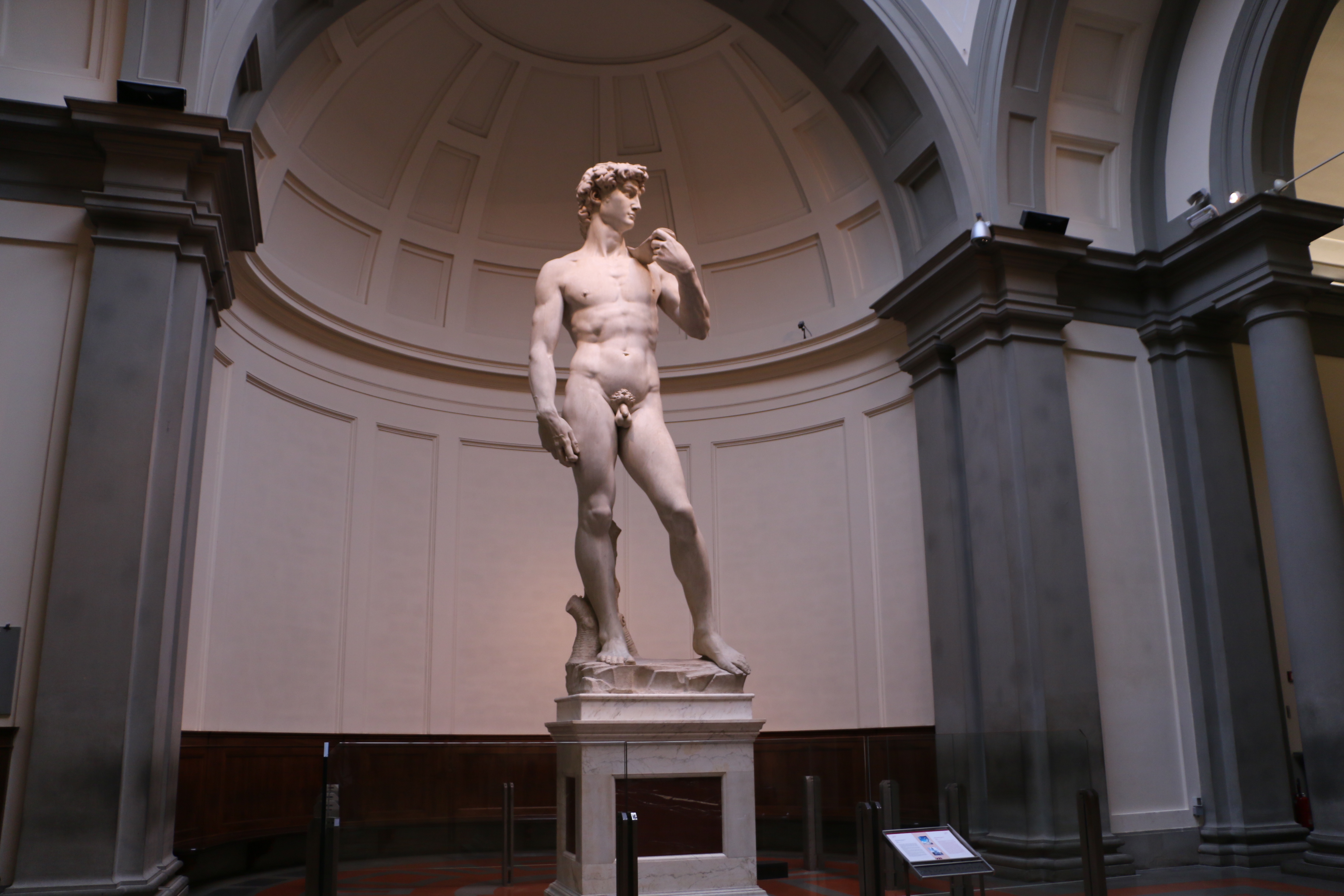
Between December 18th and 21st, Florence and Tuscany were rocked by more than 200 earthquakes, the highest at magnitude 3.8 and 4 on the Richter scale. The epicenter for most was in Chianti, the wine-growing region, between Florence and Siena. While there were no injuries nor major damages reported, many people fled their homes in Greve, 30 km (about 20 miles) south of Florence, as they feared more serious quakes. By Christmas Day, most of the quakes in Tuscany had subsided, moving south with tremors felt between Arezzo and Perugia, then Molise and even in Calabria (although experts say they are not connected).
This has prompted the Italian government to speed up plans planned for a new pedestal for Michelangelo‘s David for extra protection. Dario Franceschini, the Culture Minister, said the funds of € 200,000 would be provided by the Italian State to build an anti-seismic platform beneath the almost 17 foot (5.16 meter) statue in the Accademia Gallery. Earlier this year, Italian scientists reported that the statue, created by Michelangelo between 1501 and 1504 (see more facts here), was in danger of collapsing because of tiny fractures in its ankles: tests confirmed fears that it had been weakened by its own weight of more than five tons as well as by damage from traffic and vibrations caused by the millions of tourists who flock to see it every year.
“The earthquake in Florence fortunately did not damage the government’s cultural assets,” Mr Franceschini said as he announced funding to save the statue. “But it has made the need to approve this project even more urgent. A masterpiece like David must not be left to any risk.”
Earthquakes are common in Italy, so scientists have been at the forefront of developing anti-seismic bases made of marble to protect the country’s vulnerable statues. A special plinth was developed for the 2,500-year-old statues known as the Bronzes of Riace in the southern city of Reggio Calabria. The two warriors, discovered in the sea in 1972, stand on two square marble plinths lined with spheres that are designed to roll when the statues are placed under pressure.
The last major earthquake in Italy was in April 2009, of 6.3 magnitude on Richter scale and killed 309 people in L’Aquila.
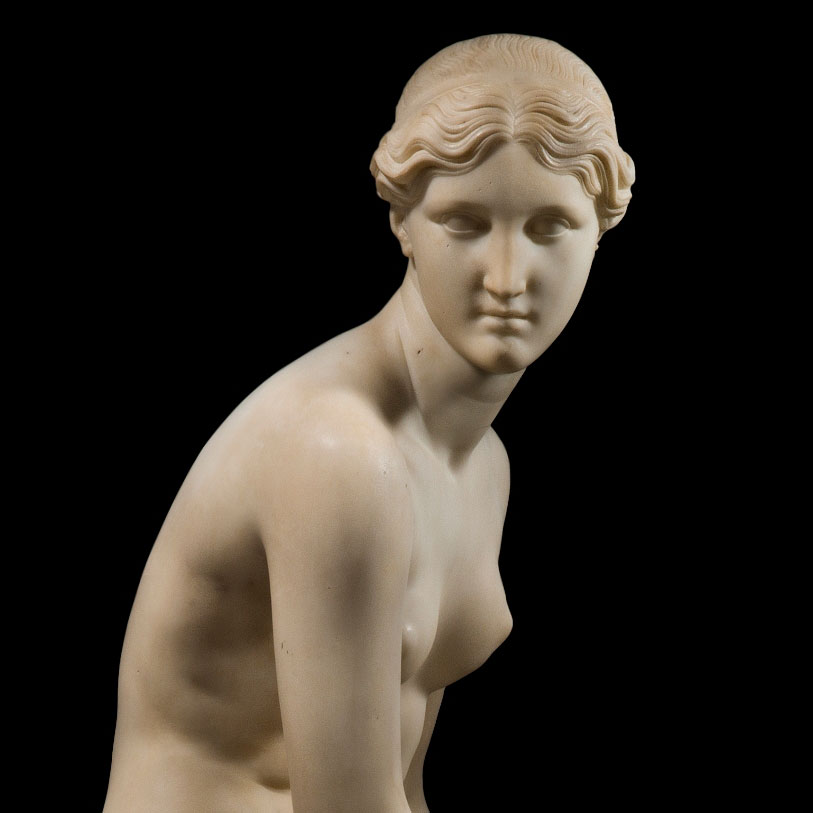
During this holiday season, the Accademia Gallery will be closed only on December 25th, December 29th and January 1st.
It will have a special opening on Monday, January 5th during the weekend of the Epiphany on January 6th.
A great chance to see the new lighting and setup of the Florentine Gothic rooms and the special exhibit of the marble Arnina right alongside the gesso statue by Lorenzo Bartolini.
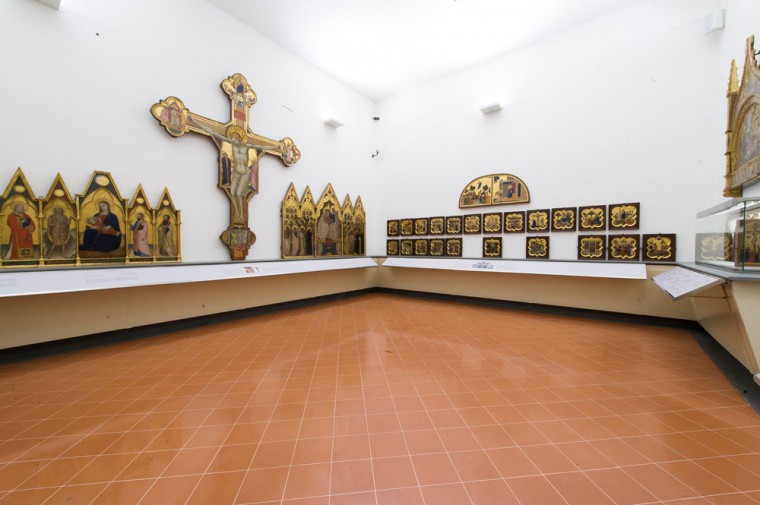
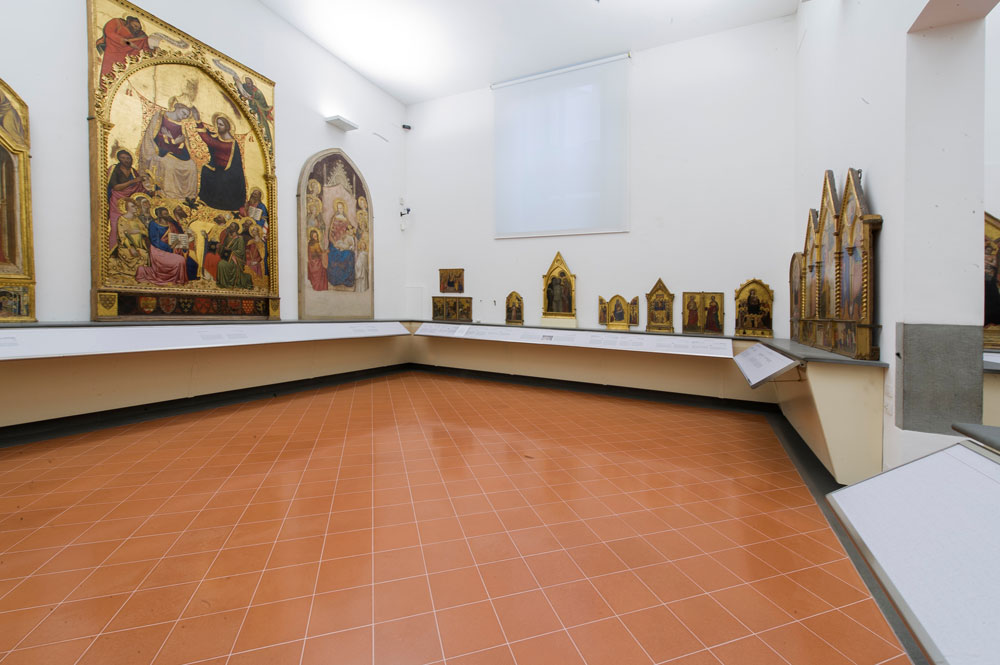
This past Monday, the three Florentine Gothic Rooms, also called the “Byzantine” rooms, got a face-lift. The lighting in all three rooms has been modernized and offers a much clearer and brighter view of the masterpieces held within, including works by Giotto, the Orcagna brothers and Taddeo Gaddi, among others.

All the works also have new and updated descriptive displays in English and Italian. The biggest change of all has been the repositioning of several of the works within. The large altarpiece by Jacopo di Cione of the Incoronation of the Virgin found in the Orcagna room (to the left as you enter from the Tribune corridor) has been moved to the center of the far wall so that it can be admired more fully as you walk in, with better lighting.
The Giottesque Room to the right is one with the most changes, where you’ll see the formelle by Taddeo Gaddi coming from the Basilica of Santa Croce. Smaller format paintings are nor within a glass case, to better protect them – they had been fully exposed up to now.

View of the “Giottesque Room”
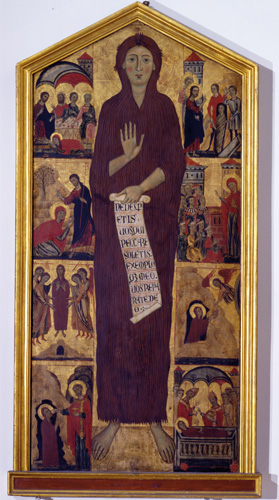
This summer, from July 1st through September 30th, the Accademia Gallery will have extended hours every Tuesday, closing at 10pm. Normal entrance fees will apply.
During this period, the Accademia Gallery is hosting the exhibition “The Fortunes of the Primitives (June 24-December 8), so tickets during extended hours will include the full price ticket that includes a visit to the museum as well as to the exhibition.
Book your tickets online now by using the Booking box to the right –>
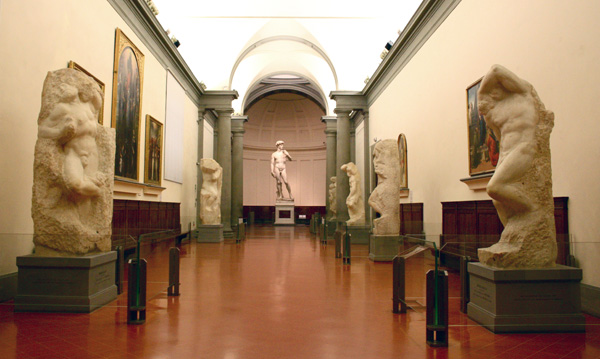
The Accademia Gallery is normally closed on Mondays but will have an exceptional opening this Monday, June 2 on the Day of the Republic.
Opening hours will be 8:15am to 6:50pm.
Enjoy the holiday!
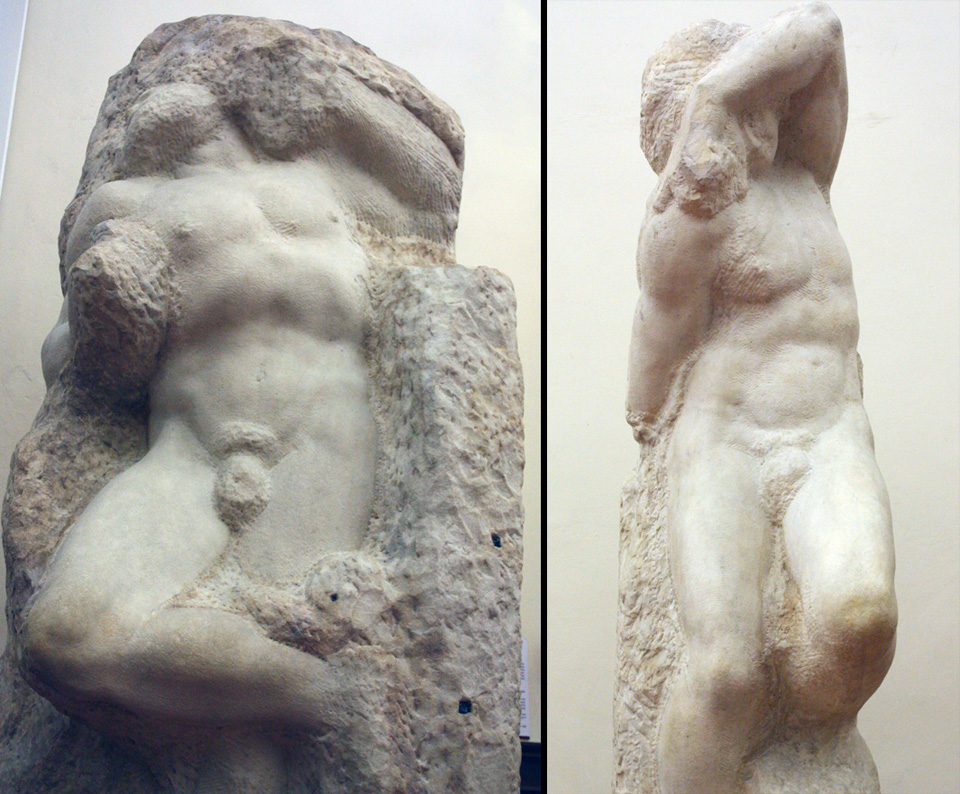
Extraordinary maintenance on the floor of the Hall of Prisoners has to occur next week, from Monday February 24 through March 3.
This means that during this period, the first two of Michelangelo’s Prisoners, the Young Slave and the Awakening Slave, will unfortunately not be visible. All other areas of the Accademia will be open and accessible to visitors.
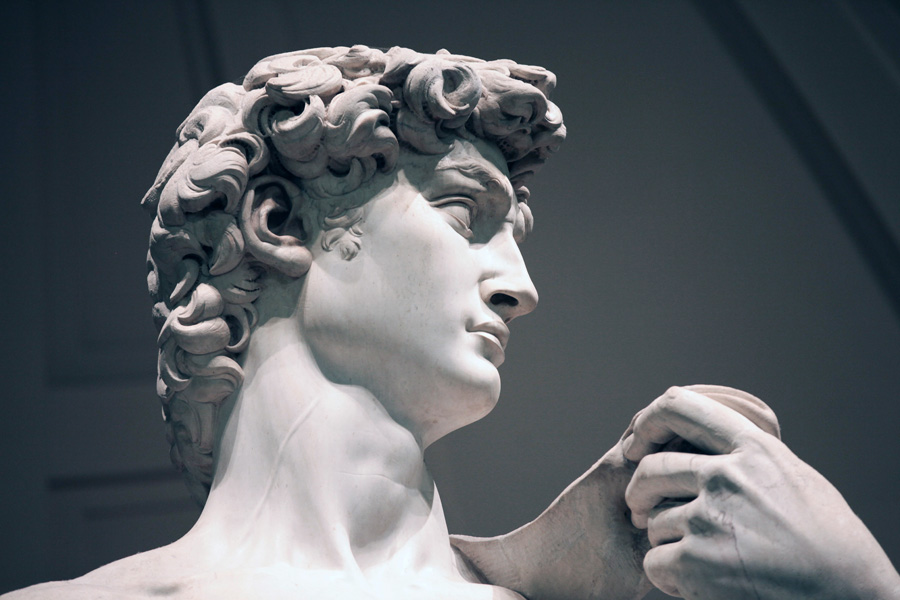
This year, 2014, marks a special year for Florence and Italy: the 450th commemoration of Michelangelo Buonarroti’s death. For the occasion, many of the locations which host works by Michelangelo will be hosting special events and exhibits.
The Accademia Gallery, home to the largest number of Michelangelo’s works in Florence, will in particular host the exhibition “Ri-conoscere Michelangelo” starting February 18 to allow visitors the chance to explore the impact Michelangelo is perceived today given how he was portrayed over the last two centuries through photographs. Read all of the details on the exhibition here.







